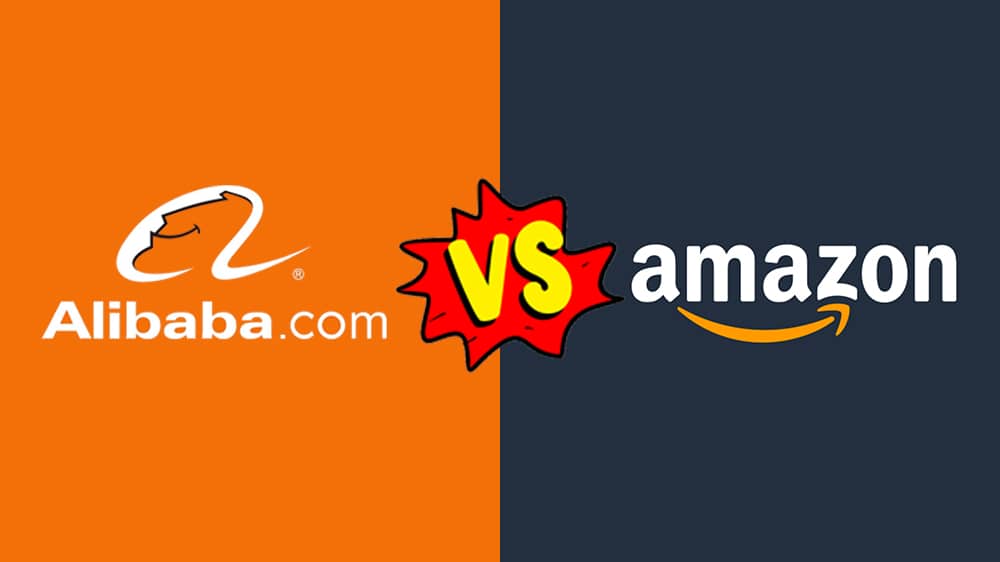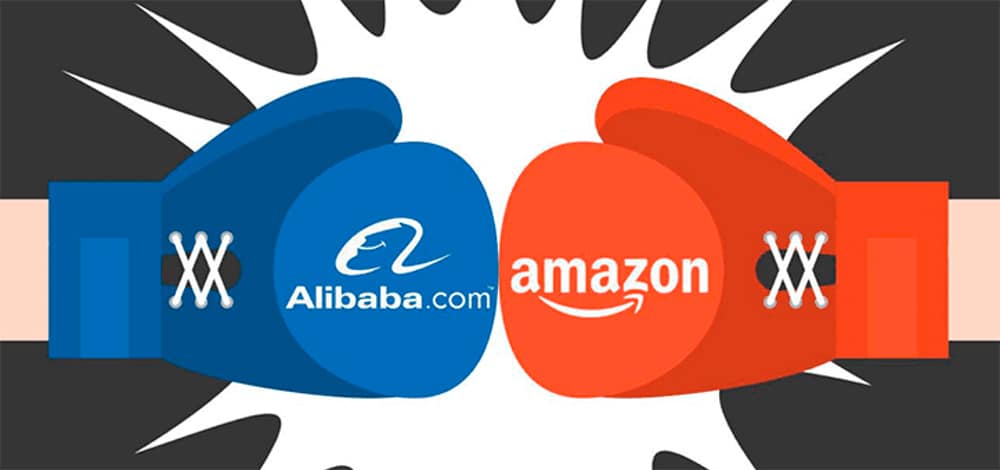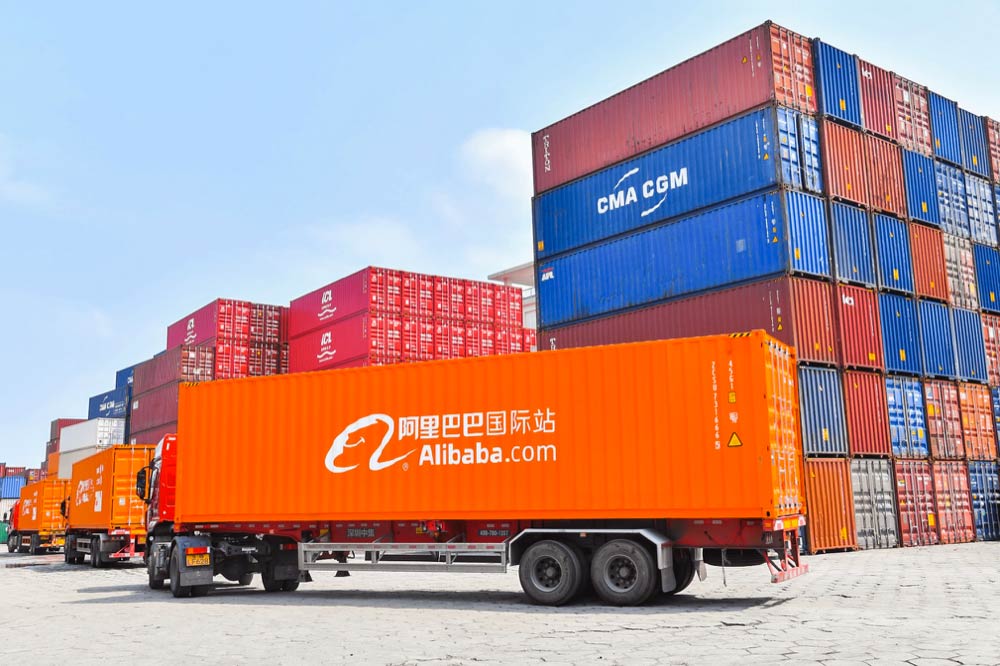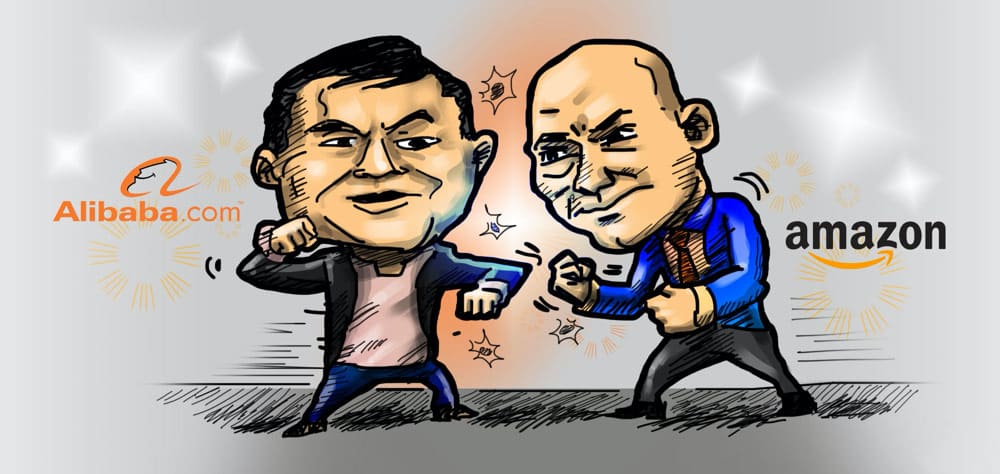
When it comes to e-commerce giants, Alibaba and Amazon dominate the conversation.
Both companies have revolutionized the world of online shopping, but how do they compare?
In this article, we will break down the differences between Alibaba and Amazon, exploring their history, business models, strengths, and challenges.
We will also compare key aspects of their services, such as market presence, target audience, product offerings, and more.
Finally, we will discuss the impact of this rivalry on consumers, merchants, and the global e-commerce market.
Overview of Alibaba

1. History
Founded by Jack Ma in 1999, Alibaba began as a B2B platform connecting Chinese manufacturers with international buyers.
Over the years, it has expanded into various sectors, including consumer e-commerce (Taobao and Tmall), digital payments (Alipay), and cloud computing (Alibaba Cloud).
2. Business Model
Alibaba’s primary revenue comes from advertising and commissions on sales made through its platforms.
It connects sellers and buyers without holding inventory, distinguishing it from the traditional retail model.
3. Strengths
- Massive reach in the Chinese market
- Diverse range of products
- Lower prices for buyers and sellers due to minimal overhead
- Strong ecosystem with integrated services
4. Challenges
- Counterfeit products and quality control issues
- Limited global presence compared to Amazon
- Complex user interface for non-Chinese users
Overview of Amazon

1. History
Founded by Jeff Bezos in 1994, Amazon started as an online bookstore before evolving into the world’s largest e-commerce platform.
Today, Amazon offers a vast array of products and services, such as Amazon Prime, AWS, and Kindle.
2. Business Model
Amazon operates as both a marketplace and a retailer, earning revenue from sales commissions, subscription services, advertising, and its own product lines.
3. Strengths
- Dominant presence in the U.S. and other Western markets
- One-stop-shop with a vast array of products and services
- Efficient fulfillment and delivery network
- Streamlined user experience and customer service
- Advanced technological capabilities, including AI and machine learning
4. Challenges
- Increased competition from local and international players
- Ongoing scrutiny from regulatory authorities
- Balancing growth with environmental and social responsibilities
Comparing Alibaba and Amazon

1. Market Presence
While Amazon has a strong presence in the U.S. and other Western markets, Alibaba dominates the Chinese market.
Amazon has been attempting to penetrate the Chinese market, but has faced stiff competition from local players like Alibaba and JD.com.
2. Target Audience
Amazon primarily targets consumers in Western markets, whereas Alibaba’s primary audience is the Chinese market.
However, both companies are actively working to expand their global reach.
3. Product Offerings
Amazon offers a wide range of products across multiple categories, from electronics to apparel.
Alibaba also offers diverse product categories, but its main focus remains on connecting international buyers with Chinese manufacturers.
4. Payment Methods
Amazon supports various payment methods, including credit cards, debit cards, and gift cards.
Alibaba offers multiple payment options, such as Alipay, WeChat Pay, and international credit cards.
5. Shipping and Logistics

Amazon has a sophisticated logistics network, including its own shipping infrastructure and partnerships with courier services.
Alibaba relies on third-party logistics providers, like Cainiao, for shipping and delivery.
6. Customer Service
Amazon is renowned for its customer-centric approach, offering easy returns and prompt customer support.
Alibaba’s customer service is improving but has faced criticism for being less responsive and less efficient compared to Amazon.
7. Platform Design
Amazon’s user interface is user-friendly and easy to navigate.
Alibaba’s platform design, particularly for Taobao and Tmall, can be more challenging for non-Chinese users due to language barriers and cultural differences.
8. E-commerce Ecosystems
Both Amazon and Alibaba have developed extensive ecosystems, incorporating cloud computing, digital payments, entertainment, and more.
These ecosystems create a seamless experience for users and help drive customer loyalty.
9. Advertising Opportunities
Amazon offers various advertising opportunities, including sponsored products, display ads, and video ads.
Alibaba also provides advertising options, like Tmall’s Super Brand Day and Taobao’s content marketing platform.
10. Mobile App Experience
Both Amazon and Alibaba have mobile apps that offer a seamless shopping experience.
While Amazon’s app is more popular in Western markets, Alibaba’s apps dominate the Chinese market.
The Impact of the Alibaba vs Amazon Rivalry

1. On Consumers
The competition between Alibaba and Amazon benefits consumers by driving innovation, improving customer service, and providing a broader range of products at competitive prices.
2. On Merchants
Merchants have access to larger customer bases and can leverage the unique strengths of each platform to grow their businesses.
3. On the Global E-commerce Market
The rivalry between Alibaba and Amazon has spurred the growth of the global e-commerce market, pushing other companies to adapt and innovate.
Choosing Between Alibaba and Amazon

1. For Consumers
When deciding between Alibaba and Amazon, consumers should consider factors such as product availability, shipping times, customer service, and pricing.
2. For Merchants
Merchants should consider factors like target audience, platform fees, advertising opportunities, and support services when choosing between Alibaba and Amazon.
Conclusion
While Alibaba and Amazon have unique strengths and challenges, both companies play a crucial role in shaping the global e-commerce landscape.
As these giants continue to innovate and expand their offerings, consumers and merchants alike benefit from a diverse range of products, services, and opportunities.
Ultimately, the choice between Alibaba and Amazon will depend on individual preferences, needs, and target markets.
We are Yansourcing, a leading sourcing company in China, dedicated to helping our clients source products from China at the most competitive prices. If you are interested in importing from China, please feel free to contact us.
FAQs
1. Is Alibaba better for wholesale purchases than Amazon?
Yes, Alibaba is generally more suitable for wholesale purchases, as it connects buyers directly with manufacturers, offering lower prices and a wider range of bulk product options.
2. Can I sell my products on both Alibaba and Amazon?
Yes, many merchants choose to sell their products on both platforms to access a larger customer base and take advantage of the unique strengths of each platform.
3. How do Alibaba and Amazon handle counterfeit products?
Both companies have measures in place to combat counterfeit products, such as seller verification processes and reporting mechanisms.
However, Alibaba has faced more criticism for counterfeit issues compared to Amazon.
4. Are there any alternatives to Alibaba and Amazon for e-commerce?
Yes, there are several alternatives, such as eBay, Walmart, Rakuten, and JD.com, which cater to different markets and offer unique features.
5. How do Amazon and Alibaba differ in terms of seller fees?
Amazon typically charges a combination of referral fees and subscription fees, while Alibaba generates revenue primarily through advertising and commissions.
The exact fees depend on factors like product category, platform, and seller status.
